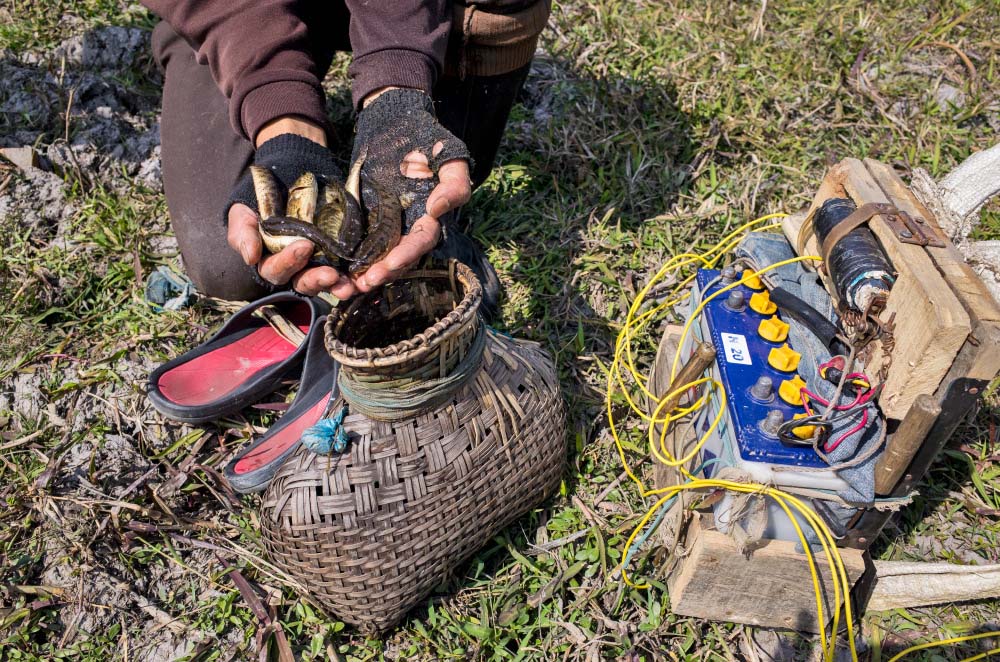 "
"
Electro-fishing (passing electricity through water to catch fish) is a popular method to stun fish and study them. When performed correctly, it usually does not kill the fish or cause any long-term damage to them. However, local fishermen use a crude version of this method to kill fish in lakes and streams in many regions of India. Often, diesel run generators, or worse, illegal use of overhead electric lines of the power grid is used to kill fish.
This image was taken in the Loktak Lake just outside the Keibul Lamjao National Park in Manipur one morning in February 2015. These fishermen were using a car battery to power the electro-fishing. To make the shock fatal to the fish they were converting DC to AC power using a power inverter (seen affixed above the battery). They would kill fish by inserting the electric rod and wire into small pools on the banks of the lake. The dead fish would float up to the surface and would be picked up by hand to move on to repeat the process. Local fishermen use very little safety gear and several accidental fatalities have occurred due to this practice.
Beyond the risk of human injury and death is the effect of such fishing practices on fish assemblages in freshwater systems. Electro-fishing can yield much higher capture rates compared to traditional methods such as nets and fish traps. However, there are no studies in India that have documented the extent of this fishing practice or the damage it causes to fish populations.

 CI is a non-profit, non-commercial portal that aims to facilitate wildlife and nature conservation by providing reliable information and the tools needed to campaign effectively.
CI is a non-profit, non-commercial portal that aims to facilitate wildlife and nature conservation by providing reliable information and the tools needed to campaign effectively.
Chosen as 'Picture of the Week'
Human ingenuity knows no bounds when it comes to hunting, trapping and fishing. As traditional ways die out, even more lethal forms are devised, to the detriment of not only the target species, but everything else that shares the same habitat.